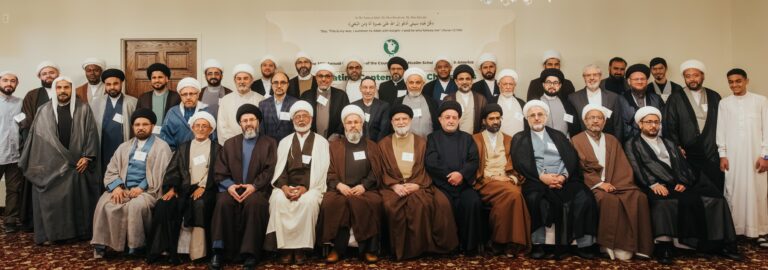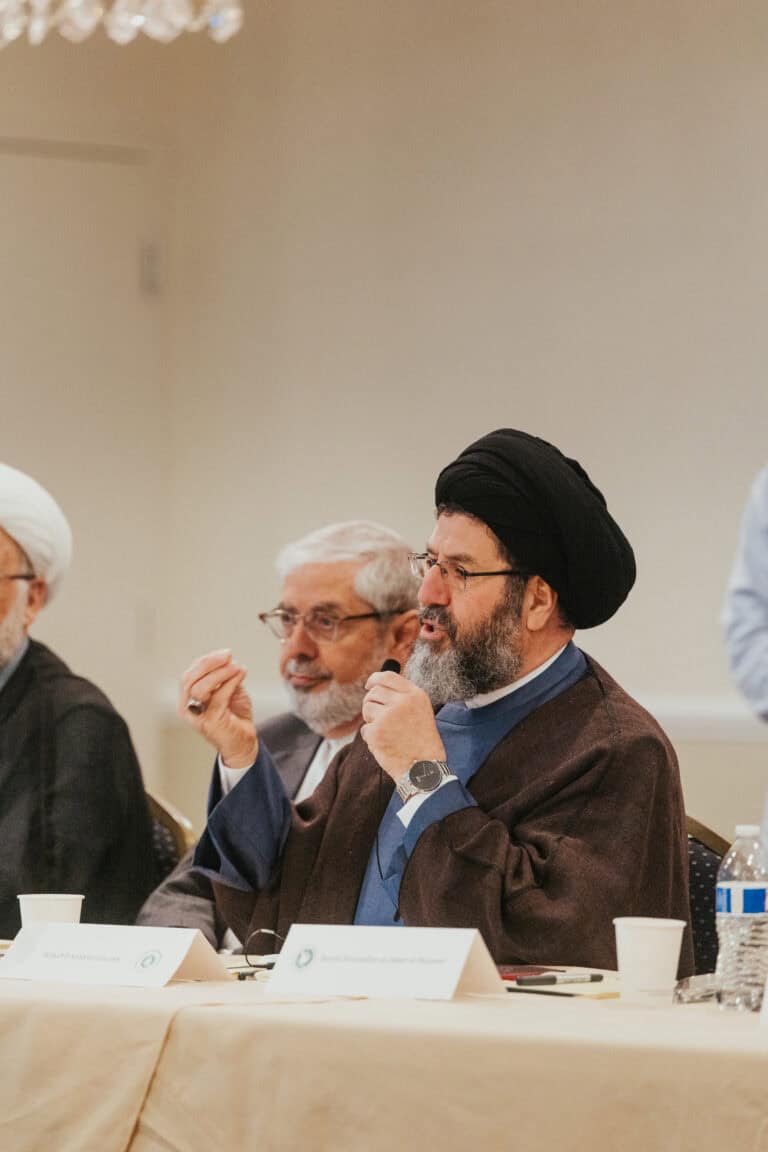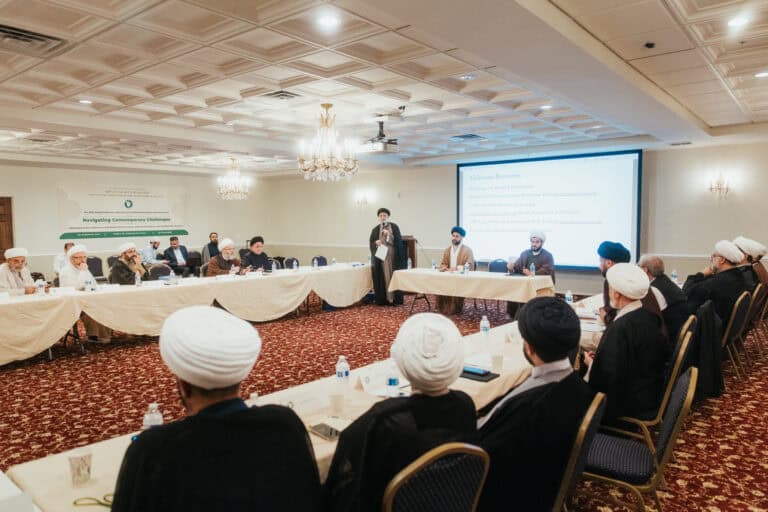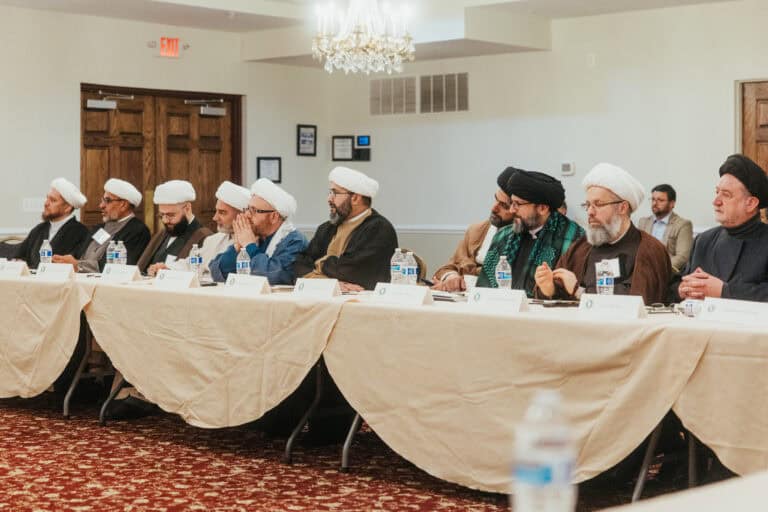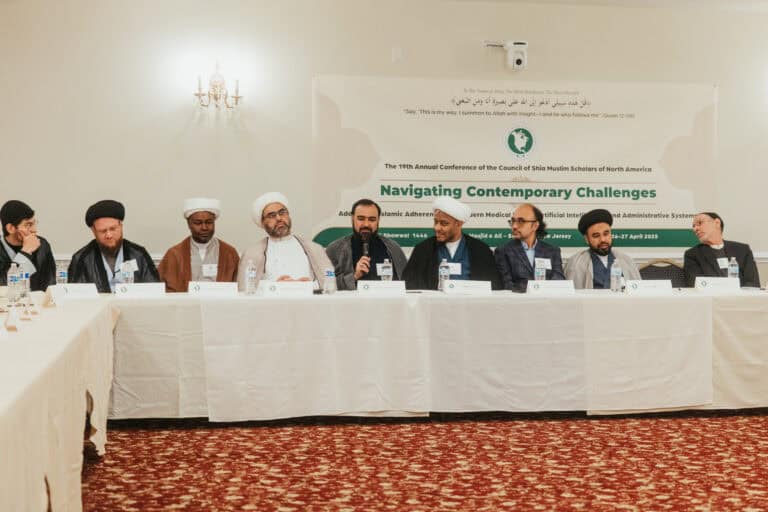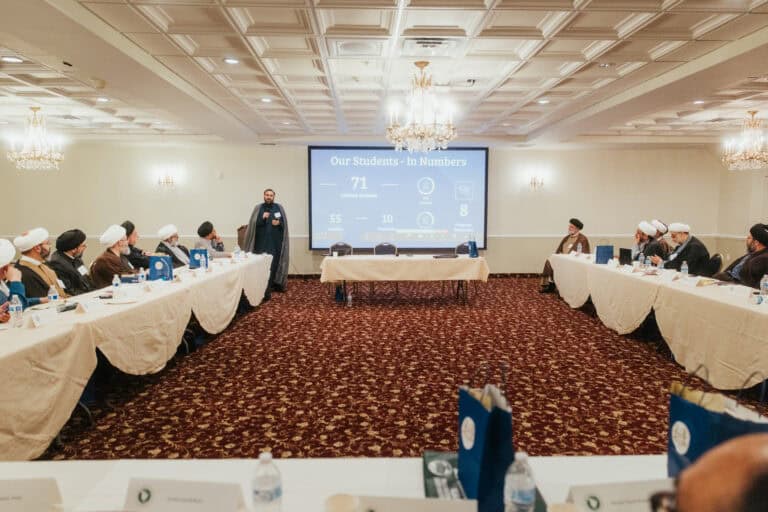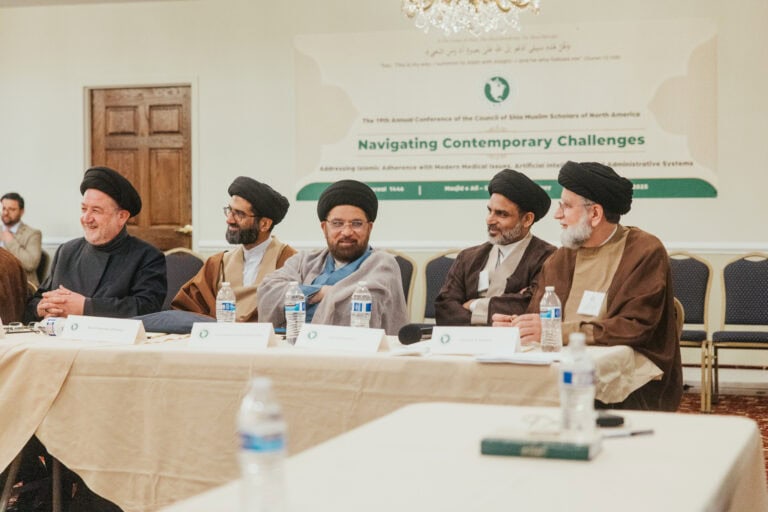In compliance to requests made by a numbers of key members of the council, the…
In the Name of Allah, the Most Beneficent, the Most Merciful
Peace and blessings on Muhammad and his holy progeny
Closing Statement:
The 19th Annual Conference of the Council of
Shia Muslim Scholars of North America
Inspired by the Quranic verse, “Say, ‘This is my way: I invite to Allah with insight—I and those who follow me” (12:108), the 19th Annual Conference of the Council of Shia Muslim Scholars of North America convened at Masjid-e-Ali in Somerset, New Jersey, under the theme “Navigating Contemporary Challenges”. Scholars, preachers, and imams from across the United States and Canada gathered on April 26 and 27, 2025 (27 and 28 Shawwal 1446 AH) to address the impact of unprecedented societal changes on Muslim communities, particularly matters related to medicine and artificial intelligence. As Muslims continue to deepen their roots in the West, increasingly complex issues require scholarly engagement to clarify the position of Islam. Thus, the conference attendees examined critical topics, including:
- Teaching with Purpose: Principles of Adult Learning and Virtual Engagement:
This session explored effective teaching methodologies, particularly the growing and inevitable need for virtual learning environments. The evolving role of online systems in religious instructions and community building was discussed, and members of the Council affirmed the need for preserving Islamic values and behavior and scholarly integrity when these platforms are employed. Moreover, scholars were encouraged to develop digital literacy skills and diverse teaching approaches to benefit a wider Muslim audience.
- Understanding Administrative Systems in the West:
Familiarity with the administrative structures of their respective countries and localities will enable clerics, religious scholars, and imams to better educate and advise their communities, and empower them to utilize available resources for personal and collective civic engagement.
- Dealing with Modern Medical Issues:
This session addressed life support, Do Not Resuscitate (DNR) orders, organ donation, and the challenges physicians and Muslim families encounter when faced with critical end-of-life decisions. The Council emphasized the need for continued study of these issues, especially in light of medical advances and changes in common practice, and the development of comprehensive white papers that provide the most up-to-date information and simultaneously seek guidance from the jurists for clear religious verdicts on these issues.
- Mental Health First Aid for Islamic Scholars:
Religious scholars with advanced education and training in mental health and clinical psychology provided instruction to the attendees and led vital discussions on mental health awareness. Recognizing its importance, the Council resolved to offer ongoing workshops throughout the year to further equip scholars with the knowledge and skills to identify and properly deal with these prevalent conditions in their communities.
- Assessment of Artificial Intelligence as a Religious Tool:
The Council concluded that while Artificial Intelligence (AI) has become a valuable educational tool, it cannot replace religious scholars or the teachings of the Quran and the Ahl al-Bayt (p). As such, the members unanimously stressed the need for religious oversight on the usage of AI for religious matters, particularly jurisprudential rulings, and a clear delineation of the limits of its application. The Council advised all Muslims to continue consulting human scholars and ensuring religious matters are carefully verified. Simultaneously, scholars were encouraged to be aware of the rapid evolution of AI and its usage among their community members, and to engage in producing accurate and effective content that can address outstanding issues.
The Council also discussed a number of matters related to its internal affairs:
- This year's conference was especially blessed by a robust participation of young scholars who are actively serving communities across North America. The cooperation between junior and senior members of the Council remains vital for preserving and passing down the rich traditions and teachings of the Imams of the Ahl al-Bayt (p) to future generations. The council encourages all new scholars to become official members and join others in serving the community at-large.
- Recognizing the need to sustain and expand its efforts, particularly in fulfilling important responsibilities like new month moon-sighting, the Consultative Board of the Council endorsed new and continuing members for the upcoming term: Sayyid Muhammad Rizvi (Toronto, ON), Shaykh Jafar Banglori (Miami, FL), Shaykh Amin Rastani (Dallas, TX), Shaykh Jafar Muhibullah (Austin, TX), Sayyid Hamed Hashemi (Tampa, FL), Shaykh Ahmad Modarres (Los Angeles, CA), and Sayyid Jawad Sajjadi (San Jose, CA).
- Discussions on several structural matters will be completed accordingly. This includes renaming, reorganizing, and making necessary changes to committees and member positions. These updates will be posted on the Council's website when they are finalized.
- The Council expresses its sincere gratitude to the distinguished guest speakers and trainers, Masjid-e-Ali and its sponsors, management, and volunteers, who graciously and seamlessly hosted this year’s conference under the leadership of His Eminence Syed Rizwan Rizvi, Jaffari Islamic Centre of Toronto, the Imamia Medics International (IMI) for their sponsorship, and lastly, His Eminence Sayyid M. B. Kashmiri and the staff of I.M.A.M. for their tireless work in organizing and managing the conference, which has been an annual tradition since 2004.
Finally, we pray to God Almighty to prolong the lives of our esteemed marājiʿ and to hasten the reappearance of the Imam of our time, may peace be upon him, and to fill the earth with justice and equity.
May the peace, mercy, and blessings of Allah be upon you all.
On behalf of the council
Sayyid Muhammad Rizvi
The General Secretary

